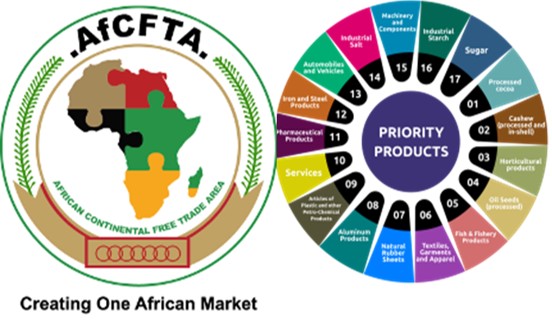The African Continental Free Trade Area (AfCFTA) risks being held back as most of the continent’s chief executives don’t know where to find information about it, a new survey finds.
Almost two-thirds of respondents (62%) to the survey published in December by PAFTRAC, the Pan-African Private Sector Trade and Investment Committee, said they do not know where to access information about the AfCFTA. Almost everyone surveyed uses the Internet to try and find information, with national and local governments the next most popular source far behind.
“This demonstrates the importance of having a central, online and easily accessible platform that can consolidate all AfCFTA-related information,” says the report.
The survey was carried out from August to October. It gathered responses from 400 respondents in 44 African countries, plus the Americas and the Middle East. A plus point is of ease of use of the information that is available. Once they have found it, only 10.5% of respondents found it “not easy” to use.
Digital solutions such as an online platform to connect buyers and sellers (76%) or an online resource centre to act as a “one-stop-shop” (66%) were the most widely requested AfCFTA policy interventions.
Digital solutions were seen as more important than in-country AfCFTA offices.
The report’s policy recommendations include increasing the supply of trade and market information to help companies identify new markets.
Politics Trumps Covid-19
The African private sector remains dominated by SMEs. Almost half of responding businesses have an annual income of less than $50,000 and 22.5% earn between $50,000 and $250,000. Just 1.2% have annual revenue over $10b.
The policy should focus on building SME capacity to comply with quality standards, packaging requirements and customs procedures, the report says. There also needs to be help for SMEs in formulating long-term business plans.
There also needs to be better access to credit and long-term financing mechanisms, and stronger linkages between SMEs and large exporters.
The respondents were very confident in AfCFTA itself. Only slightly over 2% of participants believed that the free trade area will have a negative impact on their business. Over 71% of respondents said that AfCFTA will encourage them to invest to grow their business. More than half (57%) said that AfCFTA will open up new markets for regional exports.
Political effects, including the policy environment and political instability, were the factors seen as most likely to hamper business growth, being cited by 73%. Tax and finance-related effects were only slightly behind 72%
Roughly half the participants mentioned the same three constraints: transit and customs issues related to cross-border trade; tariffs; and security.
Covid-19 was seen as much less important. Only 35% of respondents put the pandemic among their top five inhibiting growth factors for business growth.
Within the category of finance constraints, access to trade finance and investment capital was given as the two biggest handicaps to regional trade.
Cross-border payment systems were seen as the least important inhibiting factor.
Bottom Line
AfCFTA won’t reach its full potential while SME CEOs are struggling to find online information on it.

